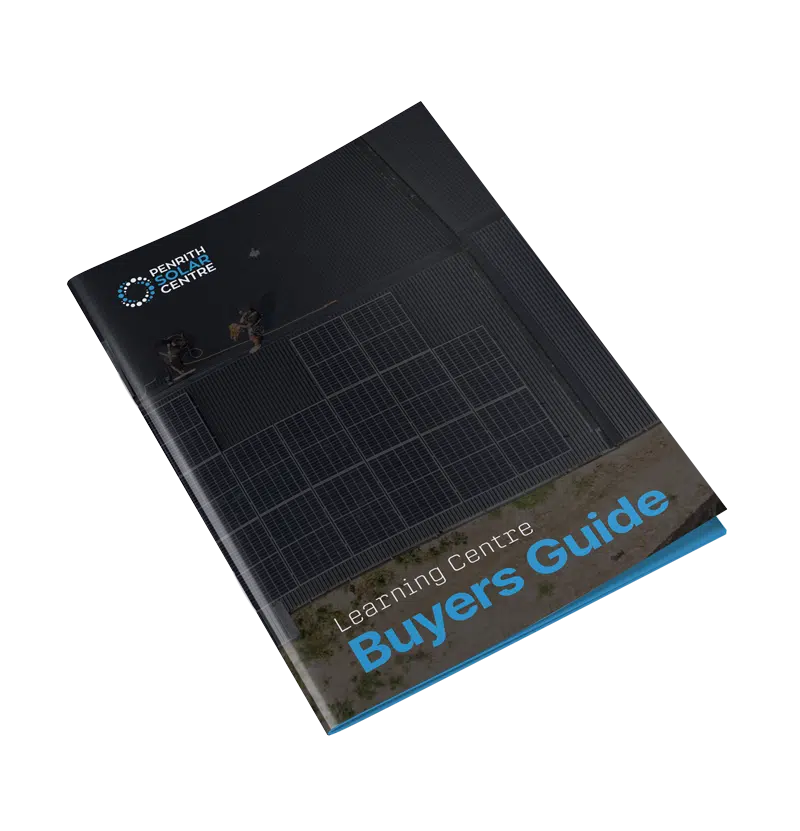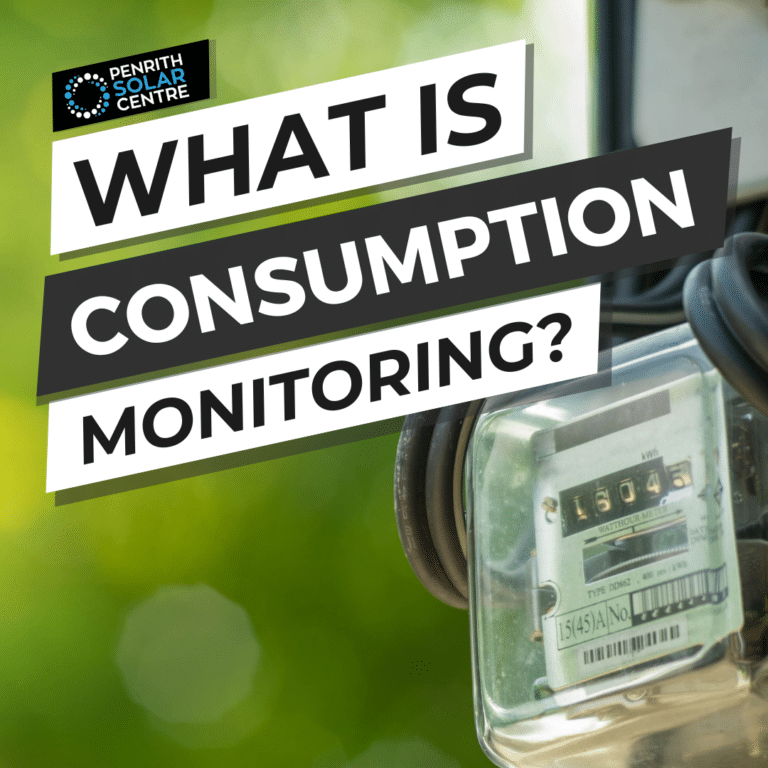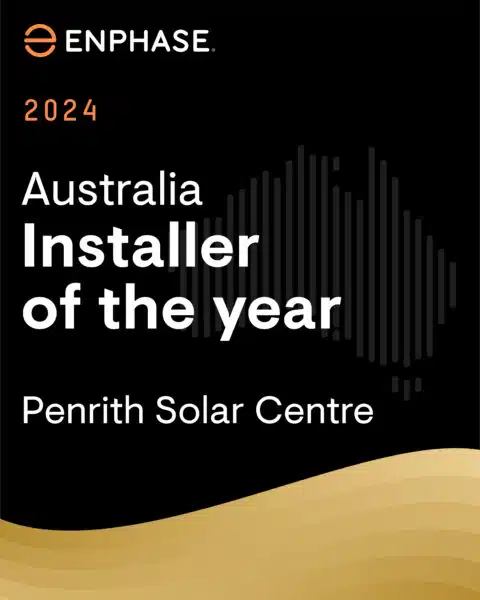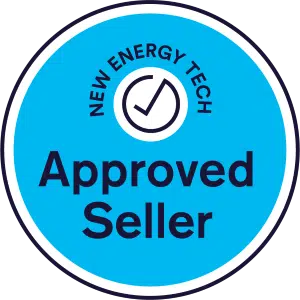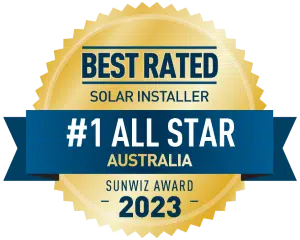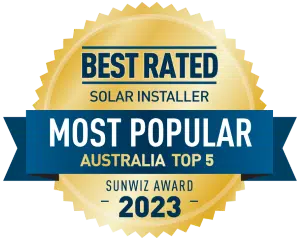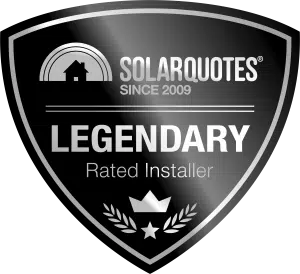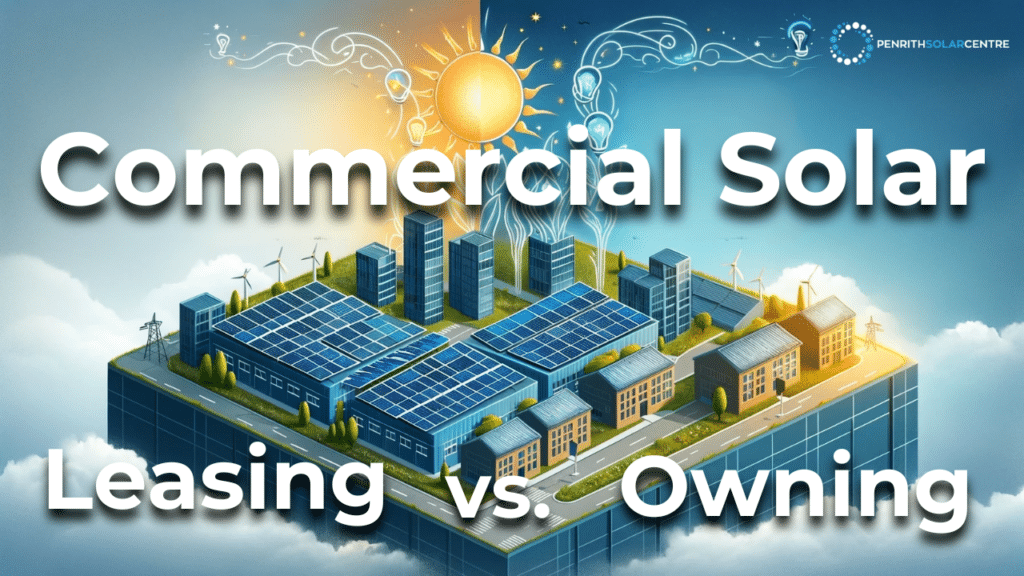
Ah, the eternal question: to lease or to own your commercial solar installation?
It’s a topic that’s debated in the commercial solar industry. There are a few options (we’ll get into that shortly) that have their pros and cons, and the decision ultimately depends on things like financial goals and long-term plans.
At Penrith Solar Centre, we begin every solar installation with a conversation. Together, we will discover your unique energy needs and goals. How those are met varies from installation to installation, especially when it comes to how you plan to pay for your solar system.
In this article, you will learn about:
- What Are the Pros/Cons of Purchasing Commercial Solar Outright?
- What Are the Pros/Cons of Owning Commercial Solar Through Financing?
- What Are the Pros/Cons of Commercial Solar Power Purchase Agreements (PPAs)?
By the end of this article, you’ll understand what your options are when it comes to purchasing a solar installation for your commercial site. Let’s dive in.
Disclaimer: This article is not financial advice or legal advice. We are not financial advisors; we install solar systems. This article is meant to be informational in nature only.
What Are the Pros/Cons of Purchasing Commercial Solar Outright?
We feel that when you crunch the numbers, purchasing a solar system outright leads to the greatest energy savings. Not every business can do that though.
Pros:
Energy Independence: When you own the solar system outright, you have full control over it. You will get all the energy it produces, as well as any incentives or rebates available for installing it.
Financial: Over time, owning your system outright usually gives you greater financial savings compared to a PPA. Once the system is paid off, your electricity bills decrease significantly, and you will most likely generate additional income by selling excess energy back to the grid.
When you buy it outright you get savings immediately. All the money it makes or saves you is yours.
Cons:
Expensive: The cost of purchasing a solar system upfront will be significant. It requires a large investment (usually), which may strain cash flow or require financing.
Maintenance: As the owner, you are responsible for maintenance and repairs. Solar panels are low maintenance, but there will be occasional expenses for cleaning or repairs that may or may not be covered under warranty.
That being said, your solar installer should have a workmanship warranty in addition to servicing the product warranties. At least, that’s something we offer.
Technology Obsolescence: Like any technology, solar panels will advance and improve over time. They’ve developed in leaps and bounds over the last twenty years. Owning the system outright means you will eventually face a day when the system is not efficient enough.
Your needs will grow. Think about how much electricity you will need to power a fleet of electric vehicles. Especially in tomorrow’s energy marketplace.
Purchasing Opinions:
Always remember to get permission from your landlord and check the rules of your strata before you install anything.
In some situations, purchasing a cheap solar system (but only if it’s cheap enough) is fine with many landlords. If you go out and buy a cheap setup (like a budget string inverter), the landlord will let you go crazy and put solar up with their blessing. The catch is that you’re responsible for removing it when you vacate the building.
This isn’t especially tragic because most string inverter systems don’t have a lifespan beyond ten years.
But if you invest in a premium solar system with microinverters, there’s a high chance (unless you’ve written Penrith Solar Centre on your roof in solar panels), that they will let you leave the system on the roof as you depart.
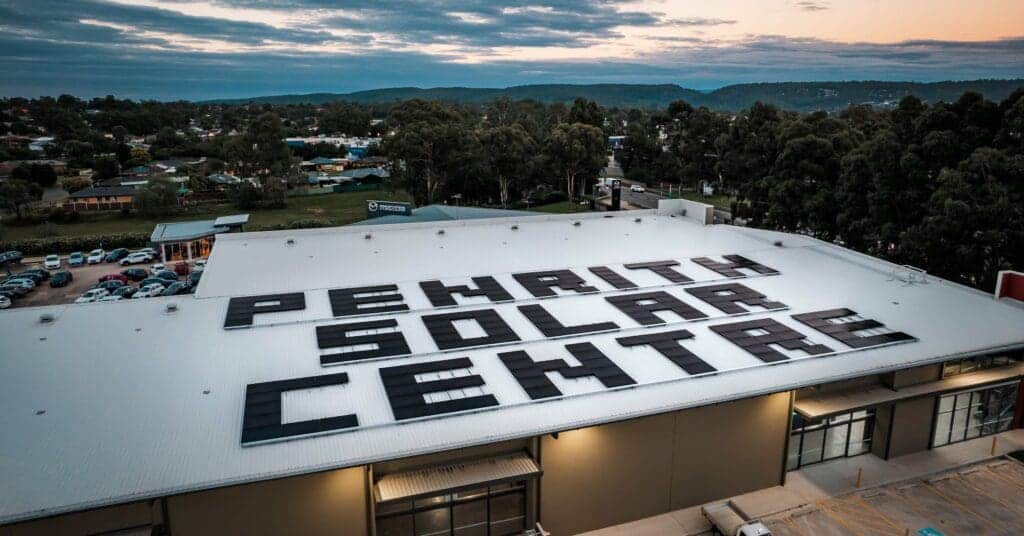
The landlord will probably want to have a finger in the pie on any decisions about enhancing the property. If you’re lucky, your landlord might even buy it for you, and then they can keep it on their building themselves. This might increase your rent. Landlords know how sweet a deal solar can be.
Now, if you’re a commercial client and you own the building — half your luck. Our advice is to fill it with solar panels – every square metre, as much as possible – to generate as much of your own energy as you can.
If you’re interested in learning a little more about the cost of a solar system, you might want to check out the following article titled, What is the Payback Period for Solar Panels in Australia?
What Are the Pros/Cons of Owning Commercial Solar Through Financing?
Securing your solar system and all the energy it will produce for you can be done through loans or financing. There are benefits and drawbacks to this option.
Like outright ownership, financing allows you to own the solar system and reap the benefits.
Pros:
Energy Independence: You choose the equipment, oversee installation, and make decisions regarding maintenance and upgrades. You’re in charge of your energy.
Immediate Savings: Financing enables you to start saving on electricity bills immediately, as the solar system begins generating energy as soon as it’s installed.
Cons:
Monthly Payments: You’ll be making repayments until the system is paid off. The flipside of that is how much money you’ll be immediately saving on your energy bills.
Interest Costs: Financing typically involves interest payments on the loan, which will increase the overall cost of the solar system.
Down Payment: Some financing options may require a down payment or upfront costs, although these are often lower than purchasing the system outright.
Debt: Taking out a loan means committing to regular payments over an agreed-upon period. Failure to make payments usually results in penalties, repossession, and legal kerfuffles.
Credit Requirements: Qualifying for a loan may require a good credit history and financial stability, which could be a barrier for some businesses.
Financing Opinions:
When buying solar commercially, there’s a big question: how are you going to pay for it?
We’re not financial advisors, we’re not accountants by any means, but we do work with financial institutions around organising financing options for commercial solar.
If you do lease the building, what is the term of the lease? You want to make sure that you’re at least getting your money back out of your investment.
If you’ve only got a three-year lease on a building, it’s a terrible idea to buy solar. If you’ve got a lease that lasts 5 – 10 years, it’s a no-brainer: go buy solar now.
If you’re paying for the solar system, you’ll want to make sure you’re around long enough to see the return on investment.
If you’re interested in learning a little more about the cost of a string inverter solar system, you might want to check out the following article titled, String Inverters: Are They Worth It?
What Are the Pros/Cons of Commercial Solar Power Purchase Agreements (PPAs)?
Power Purchase Agreements are exactly what the name suggests: an agreement to purchase power from a clean energy provider. Often, these rates are much lower than standard market rates.
This is how it works: if you want solar on your roof, find a solar provider who will organise a PPA with you and install the solar on your roof. They charge you for energy from that solar array on the roof, and it should be less than what an energy retailer offers.
Pros:
No Upfront Cost: PPAs typically require little to no upfront cost, making solar energy accessible to businesses with limited capital.
Immediate Savings: With a PPA, you will start saving on electricity bills immediately. You purchase the solar energy generated by the system at an agreed-upon rate, often lower than utility rates.
Maintenance: Many PPAs include maintenance and operation services offered by the PPA provider, relieving you of maintenance responsibilities.
Utility Rate Increases: Energy retailers are raising the cost of electricity very quickly at every chance they can get. You can negotiate with your PPA provider for a fixed or gradually increasing electricity rate.
Cons:
Long-Term Costs: While PPAs offer immediate savings, they are often more expensive over a long period compared to owning outright or financing your system.
The cumulative payments over the PPA term will probably exceed the cost of purchasing the system.
Contractual Obligations: PPAs involve long-term contracts, which can lock you into fixed payments for an extended period. Breaking the PPA early may incur penalties or fees.
Limited Control: As the PPA customer, you must adhere to the terms of the PPA agreement, which may restrict modifications without the provider’s approval. No upgrades.
PPA Opinions:
This is where the client doesn’t pay for the solar themselves.
Instead, someone will come in and install solar on your roof for free. Tenants must purchase the energy from the person who owns the solar system. It’s a popular option in the United States.
You won’t get as much benefit from a solar system that you didn’t pay for versus one that you paid for yourself. With PPAs, the person who wins is the person who pays for the solar system.
PPAs are typically locked in for 7, 10, 15, or 20 years. Locking in your energy for 20 years is an awfully scary thing if you don’t own the asset on top of your roof.
What ends up happening is PPA installers will usually use the cheapest gear that they can get their hands on. Especially if it’s on a 7 year term because they’re not worried about it lasting much more than 10 years anyway.
String solar systems pay themselves off very quickly because they’re made from cheap components. And while they may not be the most efficient system due to the lack of consumption monitoring, they’re still efficient enough to make their money back twice over in 7 – 10 years.
If you’re logical and somewhat savvy with numbers, you’ll work out that spending the money on your solar system yourself is by far the best option when it comes to long-term savings.
If you’re interested in learning a little more about determining the energy needs and goals for your business, you might want to check out the following article titled, How Much Solar Do You Need?
Commercial Solar: I’ve Had My Ion It for a While
Now you know some of the options for managing the payment of a commercial solar installation. How you pay for your energy system will inform the choices you make with your business for the next 7 – 15 years and potentially longer.
If your business has the capital available and is looking to maximise financial savings over the long term, owning the system outright may be the preferable choice. However, if upfront costs are a concern, and you value simplicity and immediate savings, leasing could be a viable alternative.
At Penrith Solar Centre, we understand how it’s essential to carefully evaluate the costs, benefits, and risks of each option before deciding. By weighing the pros and cons and implications of each option, you can make an informed decision that aligns with your business needs and goals.
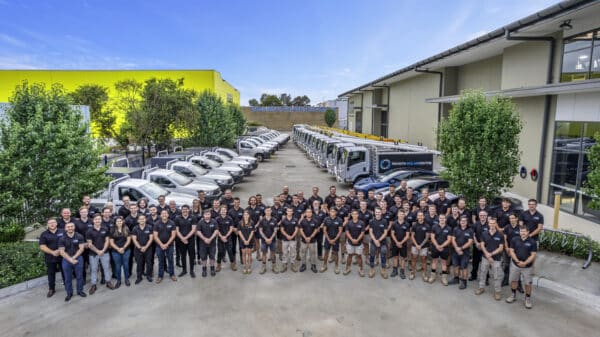
If you’re interested in learning a bit more about the types of solar systems available and how much they each cost, you might want to check out the following article titled, Cost of Microinverters vs. Cost of String Systems.
